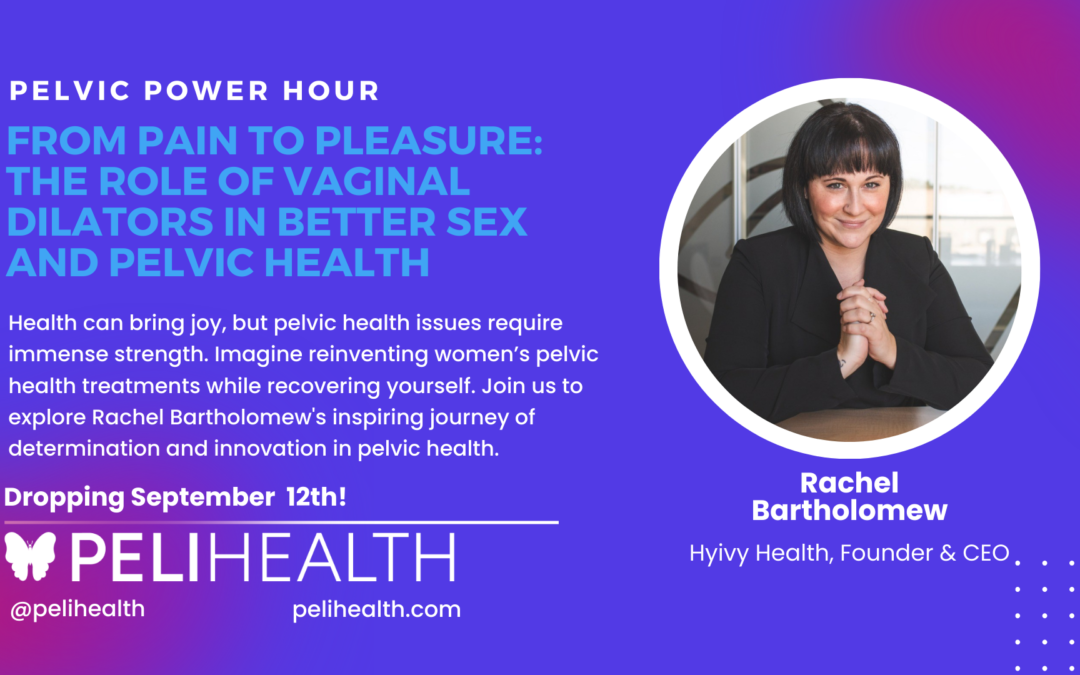The Impact of NOT Seeking Help.
It may take some women months, even years, to feel comfortable discussing the taboo topics relating to issues with your ‘bits down there’ and even more to pluck up enough courage (or be desperate enough) to finally seek help. But you may be surprised to learn that around one-third of women will experience a Pelvic Floor Disorder in their lifetime.
The number of women experiencing a pelvic floor disorder is consistently higher year on year, especially with an aging population and women living on average longer than men. Currently, an estimated 64 million women aged 30-55 experience issues with their pelvic floor in the US and UK. Therefore, as it becomes a problem for more and more women, demand for female pelvic floor disorder treatment is on the rise.
So, what else does a pelvic floor disorder in women affect? Well, before we get personal, the economy and society are pretty big factors for starters! The current strains on our healthcare systems are commonly known, and yet the level of investment in women’s health across the board, and especially in this area, are woefully low and put even more of a strain on the economic burden. Women can expect to lose days at work due to physical inability, as well as a decrease in work efficiency, and for some this can also lead to social isolation, let alone economic pressures. In turn, this also has a detrimental impact on a lot of companies, negatively impacting the economy and society as a whole. With life expectancy predicted to increase, we are sleepwalking into a problem that will only get worse unless we get serious about tackling it today.
So Why Don’t Women Seek Help?
It’s actually quite shocking how many women don’t seek help for their pelvic health and soldier on in silence. Or is it? Research shows that there are a few common reasons why women don’t get help, starting with the fact that many women simply don’t know where to look, or what to even look for. Those who did feel a little more informed often couldn’t find the right information online, or support wasn’t that readily available in their local area, and a large majority were simply just too embarrassed to ask for help.
PFDs (Pelvic Floor Disorders) are very often treatable but it can take an incredibly long time, as much as 10 years from initial presentation of symptoms to receive an accurate diagnosis and appropriate treatment, leaving women feeling unheard or misdiagnosed. As a result, women often just try searching for information on ‘Dr Google’ instead, sometimes with limited success. These types of problems holding women back from getting help need to be tackled to solve the bigger issue at hand: treating women’s health.
In January 2021, through Peli Health’s research, we found that 74% of women surveyed in the US and UK were unaware of the types of support and treatment available concerning pelvic care other than just consulting their doctor, which loops us back around to the lottery of receiving the right diagnosis. It’s imperative we talk about issues such as incontinence, chronic pelvic pain, painful sex, prolapse, etc., and educate ourselves on how to be proactive in optimizing, as well as treating, our pelvic health. Whilst the reasons why women don’t seek help are common, the impact that comes from these can be quite serious.
Time to get talking
With such detrimental impacts on certain aspects of society and the economy, not to mention your quality of life, it’s crucial to take the issue of pelvic floor disorders very seriously. Women often resort to putting up with the discomfort without much complaint, especially during pre-menopause and menopausal years, prinicpally, as life is often busy with careers and caring for others. In Peli Health’s January 2021 research, 70% of women claimed that they’d only address pelvic health problems when there was actually an issue or just ‘tough it out’, creating a huge problem since so many of us are unaware of the negative impacts on our emotional and physical health.
However, it’s not all doom and gloom. Encouragingly, when we asked ‘would you feel comfortable discussing pelvic and vaginal health-related issues with your friends?’ 70% of respondents said they definitely would or probably would. We just need to get better at understanding our bodies, what’s normal, what’s not, and how to best manage our health, even the embarrassing bits.
So the question is, what’s really preventing you from getting help with your lady bits?


